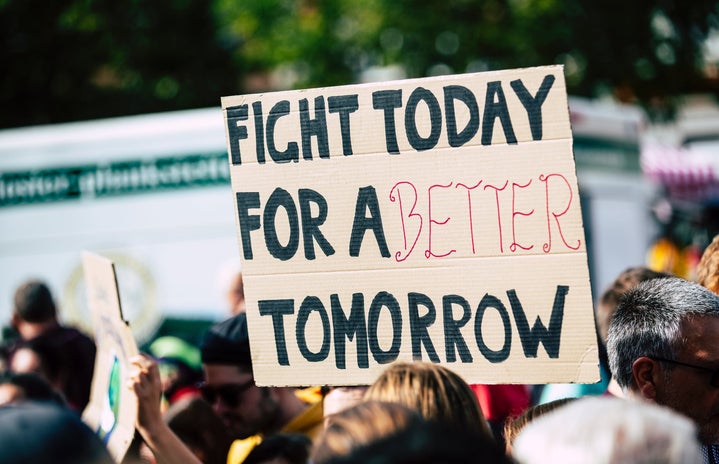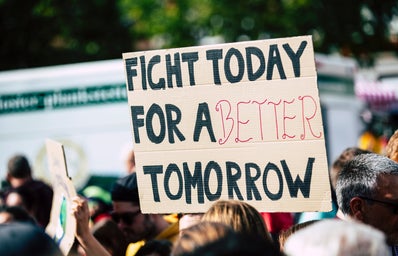Cancel culture is gaining immense popularity in current times. Merriam-Webster dictionary defines cancel culture, as the removal “of support for public figures in response to their objectionable behavior or opinions. This can include boycotts or refusal to promote their work.” While accountability is certainly positive and boycotts are a powerful tool, I question whether or not modern cancel culture has gone a step too far.
It is important to recognize that certain ideas, attitudes, behaviors and symbols should never be accepted or allowed to continue. In this way, ‘canceling’ is a good thing. However, to cancel a person for past errors and begin harassing their character is toxic and hypocritical. This is especially true if they apologize after their actions are corrected and move forward from the experience as a better person.
Let Me Explain…
This video explains in further detail why and how cancel culture is harmful and what we should do instead:
I know that it is easy to feel angry towards a person who has said or done harmful things. However, anyone should be able to move on from comments and ideologies made in ignorance after they apologize and grow to know and do better. Though we certainly cannot give people a free pass to hurt others and excuse their actions, there is a difference between calling out and calling up.
Calling Out vs. Calling Up
Calling out is harmful and attacks the person’s character and moral standing. It is judgmental and makes many assumptions about the person themselves without factoring in their upbringing, reinforcement for such behavior, or lack of exposure. Calling out will make a person feel as though they are not welcomed to change and as though they are hated by others. Calling out offers no explanation for what the person did wrong and does not offer them a better perspective.
Calling up is knowing that a person needs to do and speak better. Calling up tells them to reflect, explains what they have done wrong and allows them to apologize. Calling up allows people to move forward. By calling someone up, you offer them grace and forgiveness because you actually want a world with better people rather than a world in which you win the argument. Unfortunately, society is doing far too much calling out and not nearly enough calling up.
People vs. Ideology
Although it is easier to attack a person than an ideology, we must realize that the ideology ingrained within people is harmful, not the people themselves. I have seen many celebrities and influencers attacked about their: morals, character, looks, wealth, personality, etc. based on one unfair thing said years in the past. Though I know we cannot look away when someone acts harmfully, if we do not allow them to apologize and grow going forward, they are offered no reason or motivation to do better. If we turn around and attack certain things about who they are as a person, aren’t we doing the exact thing that we told them not to?
True Activism
Think about it this way: if someone says something that is inappropriate they begin to be attacked by communities of ‘activists’ (and a few may simply call them up). They have two options: they can ignore the attacks and keep their supporters who do not care OR they can apologize, lose supporters who see them as bowing down to pressure and still be attacked by people considering themselves ‘activists.’
If your “activism” doesn’t allow people to make mistakes, apologize, learn and grow from them, then you’re not an activist in my opinion. You’re just putting others down for their mistakes in order to feel better about your own. We all screw up. It takes guts to learn from it and back track. It’s not an excuse for making a mistake but if you don’t forgive others, then you are no better yourself. If you want a better world, you must allow people to change.
There Are Discrepancies
Obviously, as with all things, there are discrepancies and this should be taken on a case by case basis. When someone commits a violent or sexual crime, they deserve to pay for that crime and the person they enacted it upon deserves justice. If someone openly works against other groups in society and tries to hurt them, then society should stop their support of the person or company and instead support those who are contributing to a better world. Honestly, the evil people who do things just to hurt others do not deserve a dime or any business. However, I will say that if they genuinely change and move forward years into the future, the bashing should at least let up. By completely bashing someone you aren’t really better than them. I’ve been guilty of similar myself but it has been taken way too far recently. People are afraid to speak about tough issues, to learn and to grow for fear of being attacked about things that they are not educated on.
Another discrepancy to recognize is whether or not the harmful and offensive thing or comment done or said was directly harmful to you and your community. If it did not impact you or a community that you are a part of, consider the fact that it may not be appropriate for you to determine whether or not the person has appropriately apologized and stepped into a more educated and sensitive stance. However, on the same note, it also is never your place to insult the individual person and their looks, morals, etc. in response as a way to ‘get even’ and it’s not your place to dismiss the growth that they are trying to make. In these scenarios, calling out and calling up are still important things to differentiate between and you should practice calling up. Yet you may not have the ability to accept or refuse an apology or moral growth after it is given. You may accept that they are a human making mistakes and trying to change but whether or not their change is enough to right their wrongs will not always be a judgement that every person can make.
Moving Forward
If someone phrased something wrong or said something slightly offensive years ago, they should not be ‘canceled’ for the rest of their lives if they apologize and grow forward. Canceling in such circumstances ignores the human ability to change. Canceling in this way makes it seem as though you have never made a mistake or been offensive yourself—which is not possible if you’re human. I personally believe that it’s time to cancel cancel culture and allow humans to do what they do best—grow and change. As I said, it should be taken case by case, but the overall denial of the right to make mistakes and learn from them is creating a toxic culture where people in any kind of spotlight are unable to change. If we truly want a better world, we have to allow that.


